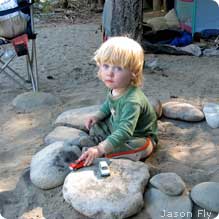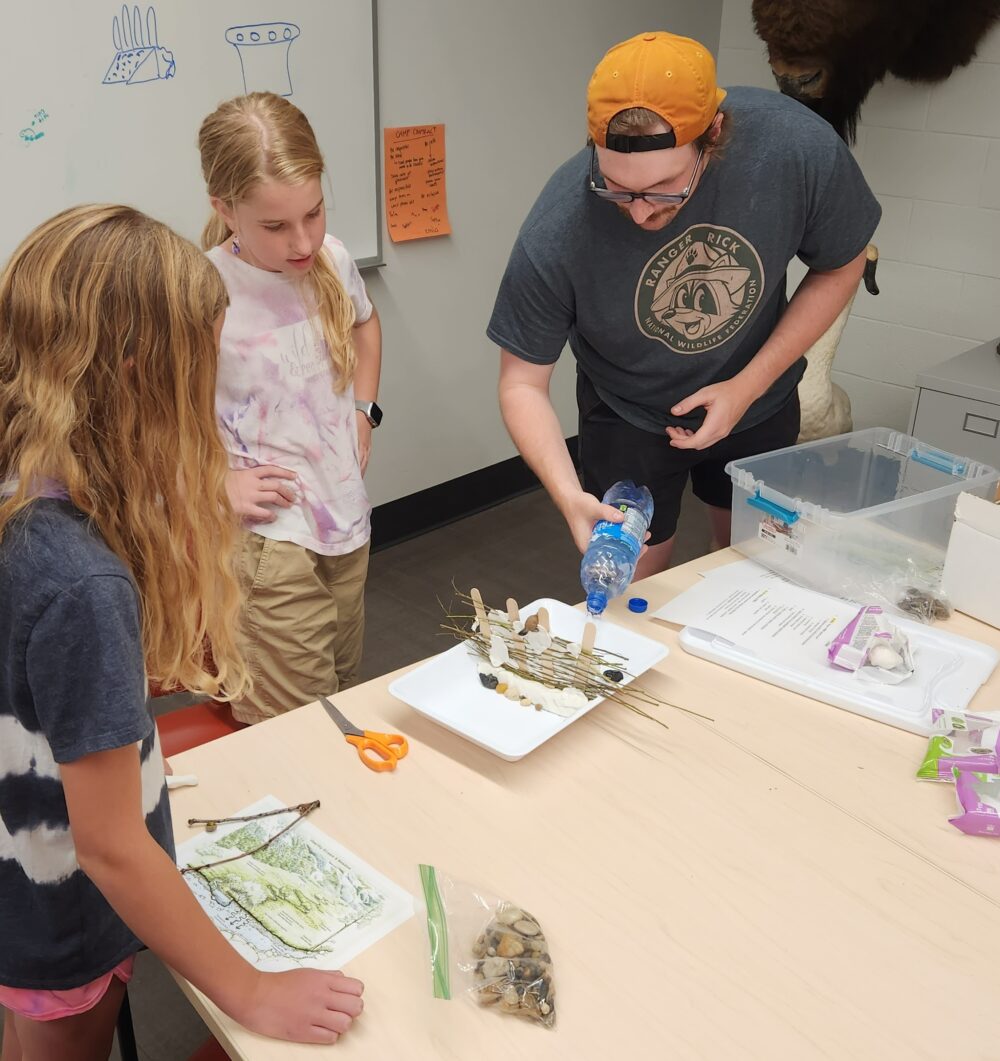We have much more to do and your continued support is needed now more than ever.
Ten Tips for Camping with Toddlers
 Camping with a tot comes with its own set of … well … unique challenges. They’re extremely mobile, but usually not yet potty-trained or old enough to know what NOT to put in their mouths.
Camping with a tot comes with its own set of … well … unique challenges. They’re extremely mobile, but usually not yet potty-trained or old enough to know what NOT to put in their mouths.
But with a little preparation, a night under the stars with a toddler can be a joyful experience:
- Not the time for wilderness camping: When camping with small children, choose a camping spot close to home that has basic amenities, like running water and toilets. Car camping works well: if the kids aren’t loving the experience, the car—and home—are close by. Or—even better—register for the Great American Backyard Campout and invite the neighbors over!
- Portable crib: Some parents try to have their toddler sleep with them on an air mattress in the tent. This may mean a sleepless night for Mommy and Daddy, as the child excitedly runs around her new sleeping space—and all over you! Consider renting or buying a large family tent that can fit a Pack-N-Play, or another brand of portable crib.
- Bedtime rituals: Keep bedtime in camp similar to bedtime at home. At the usual time, wash with the child in the camp bathroom, get pajamas on and read aloud some familiar stories.
- Toys for tots: Pack a tyke-sized backpack for each little camper with some favorite “outdoor” toys—bubbles, trucks and cars, beach shovel and bucket. Most campsites have a sand or dirt “floor” that can become a new world for your children to explore.
- Watchful eye: Of course, campsites will have more hazards than, say, your living room: a fire, possibly a lake or a stream, wide open spaces or dense woods. Don’t panic. Be aware of the dangers your particular campsite poses and be vigilant.
- Beat the heat: You don’t have control over the temperature like you do in your home. Bring a portable fan to place outside the crib at night, and water squirt bottles to cool off hot kids during the day.
- Packing tip: Sort and pack each day of your children’s clothes within individual small plastic grocery bags in their overnight bags. This way you can grab a bag in the morning and have a full set of clothes for the day, and at night you can stuff the dirty ones back in the bag—to keep them separate from the rest of the bag.
- Pack layers: Dress kids in several layers, which can be peeled off as they get warm or added on as they cool off.
- Keep the light on: Kids of any age should have their own light source during a campout. A flashlight for older kids; a glow stick for younger ones.
- First aid kit: Cuts and bruises are not the end of the world. For close to home trips just bring the essentials:
- band-aids of various sizes
- hydrogen peroxide
- neosporin
- eye drops
- aspirin or other pain medicine
- anti-itch cream
- kid-safe insect repellent





















